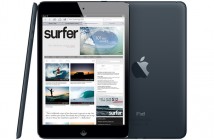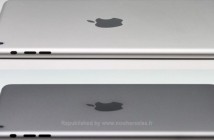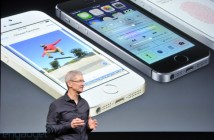 The dust has finally cleared and both versions of the iPad are selling strong in the U.S., with international iPad sales beginning on the 28th. Rumors are already starting that Walmart might be able to carry the iPad later this year. So it’s time to fact check the article I wrote back in March when iPads were first announced where I used the iPad sales strategy to predict the future of iPhone and iPad sales.
The dust has finally cleared and both versions of the iPad are selling strong in the U.S., with international iPad sales beginning on the 28th. Rumors are already starting that Walmart might be able to carry the iPad later this year. So it’s time to fact check the article I wrote back in March when iPads were first announced where I used the iPad sales strategy to predict the future of iPhone and iPad sales.
So, who actually got to sell the iPad? Here’s my scorecard.
Campus Bookstores
I predicted that Campus Bookstores would be able to sell the Wi-Fi iPad and not be able to sell the iPad 3G. I assumed that the activation and choice of a data plan would be complex and therefore would need some kind of personal assistance. I was wrong. Activating a 3G iPad is no harder than setting up an iTunes account. Everything is handled either via iTunes or the built-in iPad settings. Apple made buying a data plan so easy, sales staff was not required. That leads me to my big blunder in predictions.
AT&T Stores
If a device worked on the AT&T data network, one would assume they’d sell it at AT&T stores. Oops. From informal chats with AT&T sales staff, they make commission off phone sale plans. Since Apple made choosing and activating a data plan so easy and eliminated contracts and penalties, sales staff wouldn’t get commissions. Why sell an iPad 3G when there are so many more profitable devices and plans to sell? My prediction was based on AT&T selling a variety of PC-based netbooks that are included with data plan contracts. Apple is trying to distance itself from the netbook market and I’m sure would not allow the iPad to be sold along with any other device.
Apple Specialists
I get half credit for this prediction. Yes, Apple specialists got to sell the iPad. From talking with multiple Specialists, the rules and procedures to sell the iPad were incredibly specific. Apple dictated the displays, the language used to describe the iPad, as well as the marketing requirements. I have yet to see a website of one of these companies actually mentioning they have the iPad. The first weekend I was at a store that sold an iPad and heard an employee being chastised for using the word “click” instead of “tap” when referring to opening an application. Apple wanted the experience with “iPad” to be “magical” and “revolutionary.” In fact, Apple never puts the article “the” in front of iPad. Upon chatting with that same chastised employee, he explained that iPad is more than a product — it’s an experience. One does not refer to “the” love, but rather one is in love. One cannot simply talk about iPad without experiencing it. That grammatical anomaly leads me to my final prediction.
The Rest of the “Indirect Channel”
An iPad must be experienced, it can’t easily be bought from afar. While Apple must sell iPads on its website, I believe it didn’t allow catalog resellers to sell the iPad directly on their websites because it wanted complete and total control over the iPad experience (since I don’t work for Apple, I can put an article in front of “iPad”). While some resellers got to sell the iPad, it appears Apple didn’t allow direct orders from any website but Apple’s. Places like MacMall and CDW have the iPad listed on their site, but you “must call” to order. Amazon did not get to sell the iPad. I’m not sure if that was because it doesn’t have a strong telephone sales division, or simply Apple didn’t want to sell the iPad along with the Kindle.
Because Apple did not differentiate sales of the iPad Wi-Fi and 3G, those resellers that list the iPad on their website generally list both versions.
My Score
Not good. My two critical flaws were thinking that somehow the Wi-Fi and 3G versions could be sold under separate channels. Apple’s easy activation made it possible to sell the iPad just like any other device. Unlike any other Apple device, though, Apple wanted direct control over the experience, which limited sales over the web or advertising by Apple specialists.
Latest Prediction
Once everyone understands that the iPad is not just a “big” iPod touch or an iPhone that can’t make phone calls, Apple will allow a wider distribution of the product. Holidays 2010 could see the iPad at more traditional retailers who currently sell the iPod. Having the iPad at Walmart positions the iPad keenly against the netbook market.
Allowing the indirect channel to sell iPads was an experiment by Apple to control a new product experience. Could non-Apple employees be trusted to sell such an important product? I believe the next version of the iPhone will need a wider distribution and will be sold by those resellers that were given authorization to sell the iPad. That means again you could skip the wait in line at Apple or AT&T stores. This cuts into AT&T’s ability to upsell on their phone plans, but does set the stage for resellers to be able to sell an iPhone that’s carrier-agnostic. They’ll sell the AT&T and the Verizon (if it happens) iPhone alongside each other. Or again, I could be completely wrong.
Related GigaOM Pro Research: Web Tablet Survey: Apple’s iPad Hits Right Notes

Continue to read on TheAppleBlog



